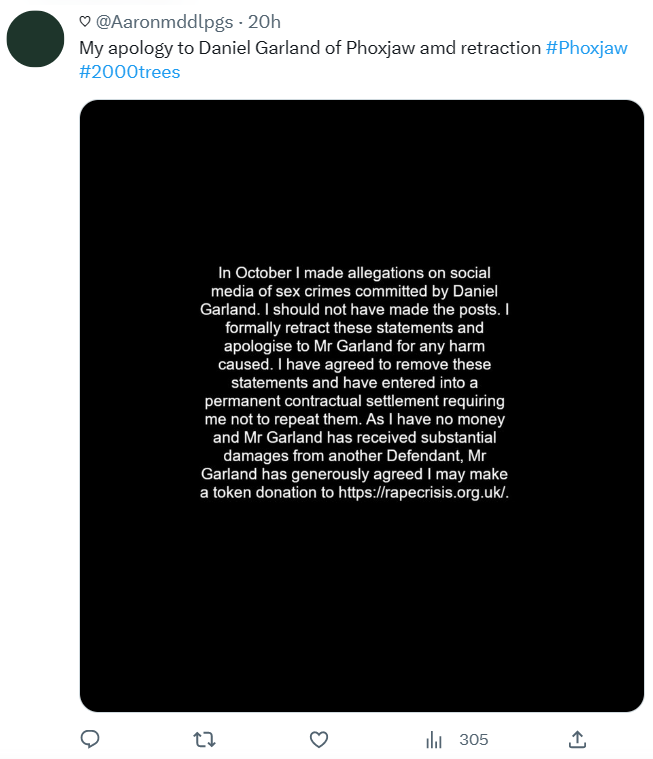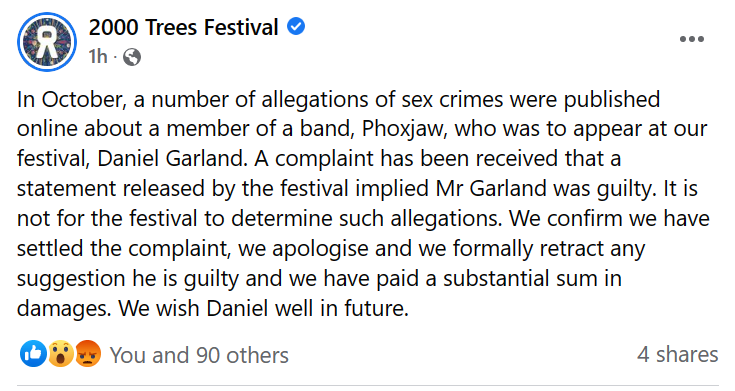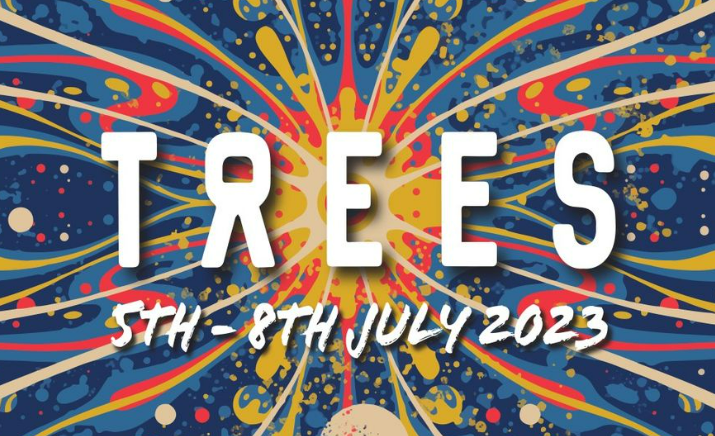Daniel Garland has secured a settlement of his libel and harassment claim against Aaron Britton, formerly a member of the band, Knives. Aaron had accused Garland on social media of the rape of, ‘tens’ of women (i.e. at least twenty). However, when your author provided pro-bono support to bring a libel claim, Aaron chose to settle instead of defending the claim and agreed to a permanent contractual settlement which he announced on Twitter (archive) and Facebook. Such contractual arrangements have a similar effect to a lifelong restraining order and if they are broken the beneficiary can bring a claim for an injunction with a penal notice, and imprisonment if it is breached. As he has no money, he has agreed to make a donation to Rape Crisis. Aaron has also announced separately he has left the band, Knives, citing, “overwhelming” events in his personal life, and mental health problems. This tragic outcome underlines the dangers of musicians supporting dubious and false allegations on social media.

Aaron Britton, former of the band Knives, has apologised to Daniel Garland of Phoxjaw, retracted his allegations and paid a donation to rape crisis in lieu of damages.
Aaron’s announcement should come as no surprise. The 2000 Trees Festival, which could afford very expensive, tier-1 lawyers, has already retracted, apologised and paid, “substantial” damages. However, the further retraction gives me the opportunity to make a few things clear. I am a law graduate. I have passed the LL.M LPC. I have not sought admission or to practice as a solicitor, even though I passed the exams but I have over ten years litigation experience as a charitable McKenzie Friend. I have helped in this case, for free, because I believe it is meritorious. Daniel has also been helped, pro-bono by David Hirst of 5RB Media Chambers. We do not help people bring libel claims for free if we think they are guilty of sex crimes.



